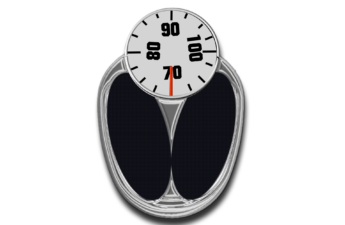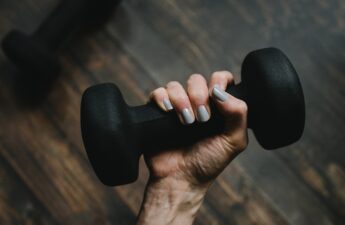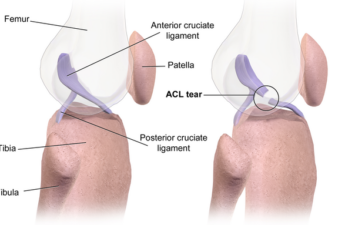Category: Fitness
New drugs that melt away pounds present more questions than answers but could be key tools in reducing the obesity epidemic
While these medications hold promise, they are not wonder drugs. In my view, they warrant much more research before they become the basis for a new weight management protocol.
It’s time to bust the ‘calories in, calories out’ weight-loss myth
One reason the simple “calories in, calories out” formula is not so simple is our bodies don’t consume every calorie the same way. What’s shown in your calorie counter is not what’s actually absorbed in your body. Different calorie sources also have different effects on our hormones, brain response and energy expenditure, changing how we respond to and manage our food intake.
Body dysmorphic disorder: what to know about this mental health condition
Actress Megan Fox recently revealed she had body dysmorphic disorder. Many people are dissatisfied with some aspect of their appearance, but people with body dysmorphic disorder are consumed for several hours a day by intrusive thoughts and feelings about their perceived flaws.
It’s time to leave the Paleo Diet in the past: Recent studies have failed to support its claims
The Paleo Diet has been a worthwhile experiment, but at this point it seems likely that people following it might just be wasting money. Conventional, government-recommended diets offer comparable outcomes at a lower cost. In our view, it’s time to leave the Paleo Diet in the past.
Balance declines with age, but exercise can help stave off some of the risk of falling
A number of physical changes with aging often go unseen preceding falls, including muscle weakness, decreased balance and changes in vision.
Am I too old to build muscle?
What science says about sarcopenia and building strength later in life
Obesity in children is rising dramatically, and it comes with major – and sometimes lifelong – health consequences
Without intervention, many obese adolescents will remain obese as adults. Even before adulthood, some children will have serious health problems beginning in their preteen years.
Eating disorders are deadly: What are they, who’s at risk, and what can be done about it
Adolescence is also when eating disorders have the greatest negative effects on health. Five per cent of the general population in North America will suffer from an eating disorder in their lifetime, but few people seek treatment. The prevalence of eating disorders and struggles to access help highlight the need to increase awareness and decrease stigma.
Does exercise help you lose weight?
Exercise will help you lose weight and prevent you putting on weight again – it’s just that it won’t help you achieve your weight loss goals in isolation.
Being ‘Socially Frail’ Comes With Health Risks for Older Adults
Social frailty is a corollary to physical frailty, a set of vulnerabilities (including weakness, exhaustion, unintentional weight loss, slowness, and low physical activity) shown to increase the risk of falls, disability, hospitalization, poor surgical outcomes, admission to a nursing home, and earlier death in older adults.Essentially, people who are physically frail have less physiological strength and a reduced biological ability to bounce back from illness or injury.
Ozempic helps weight loss by making you feel full. But certain foods can do the same thing – without the side-effects
Dietary changes have much fewer risks in terms of side effects, but the responses will take more time and effort.
Is menopause making me put on weight? No, but it’s complicated
When it comes to menopause and weight, it’s weight redistribution – not weight gain – that is actually a symptom. Research has confirmed menopause is linked to an increase in belly fat but not an increase in overall weight.
Exercise is even more effective than counselling or medication for depression. But how much do you need?
We found the higher the intensity of exercise, the more beneficial it is. For example, walking at a brisk pace, instead of walking at usual pace. And exercising for six to 12 weeks has the greatest benefits, rather than shorter periods. Longer-term exercise is important for maintaining mental health improvements. When comparing the size of the benefits of exercise to other common treatments for mental health conditions from previous systematic reviews, our findings suggest exercise is around 1.5 times more effective than either medication or cognitive behaviour therapy.
Female football players are at much higher risk of career-ending ACL injuries – the science on why
Females have a wider pelvis relative to leg length, which results in increased angulation at the knee. The shape of the bones is also different in women in that the ACL passes through a narrower space to attach to the thigh bone, which may make it more susceptible to injury. The actual size of the ACL is also often smaller in females, so may be less able to withstand high forces.











